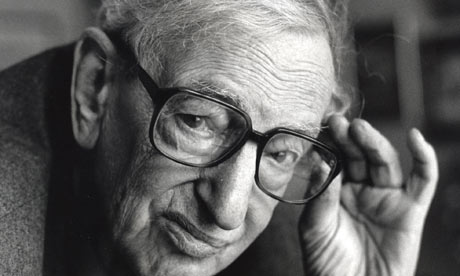
From a New York Times review of ‘Interesting Times’ published in August 24, 2003
To have marched in the last legal Communist demonstration in Berlin in 1933 may have been an experience as delicious as protracted sexual intercourse (Hobsbawm’s metaphor, not mine), but the experience of defending the indefensible and — more insulting — of being asked to believe the unbelievable was far less delightful and, equally to the point, very much more protracted. Again, Hobsbawm’s vices mutate into his virtues (and vice, as it were, versa). He is determined to show that he was not a dupe, but went into it all with eyes open, while he is no less concerned to argue that he did not want to become one of those ”God That Failed” ex-Communists.
Is this idealism or cynicism? He was one of a group of solid and brilliant English Marxist historians, including Christopher Hill and Edward Thompson and John Saville, none of whom could stomach the Communist Party after 1956. Yet he soldiered on as a member until the end of the Soviet Union itself, while admitting that he hardly ever visited the place and that when he did, he didn’t much care for it.
Now he tells us that he suffers nostalgia for what he never much liked. I think he has nostalgia all right. He mourns the lost Britain of trams and bicycles and hiking and cheap lodging and labor solidarity, and he misses the intellectual companionship of a Europe, part Parisian and part Mitteleuropa, where names like Henri Lefebvre and Ernst Fischer really meant something. He also possesses a strong feeling for the Italy that took Antonio Gramsci seriously and, in his absorbing passages on his long stays in the United States, says that he felt most at home in the 1950’s of jazz and the Village and counter-McCarthyite bohemia. (Under the nom de plume of Francis Newton he was for many years a jazz critic of some aplomb.)
I would say that by 1968 Hobsbawm had become a fairly distinguished political and cultural conservative. He already knew that the Soviet Union was going nowhere but down, and in Latin America, where Communist revolution was still thinkable, he regarded the idea as neither possible nor desirable.

